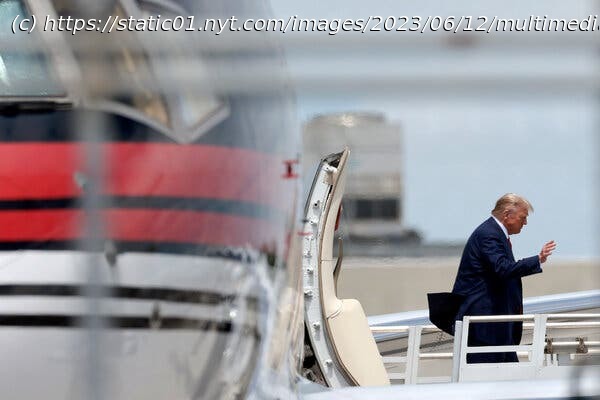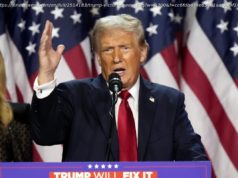The former president has already tested a variety of arguments to challenge his indictment in the classified documents case. They could be hard to sustain in court.
Former President Donald J. Trump and his advisers have been scrambling down to the wire to assemble a legal team for his first scheduled court appearance on Tuesday after being charged with mishandling classified documents and obstructing the government’s efforts to retrieve them.
But even when Mr. Trump figures out who will represent him, the lawyers will face a more significant challenge: how to rebut the charges in a criminal case in which their options may be limited.
While no one knows precisely how Mr. Trump will go about attacking the most serious charges he has faced, his options for using the legal system to delay the case, turn it into a political circus or paint himself as a victim of federal prosecutors are numerous and varied.
Even before his indictment, Mr. Trump, his allies and his lawyers had hinted at some of the arguments they could raise.
They include asserting that Mr. Trump had a right to take the documents from the White House and that he had declassified them before leaving office. They could accuse the prosecutors of misconduct or try to show that he was a victim of selective prosecution. And they could seek to have potentially damning evidence excluded from the trial or try to force the government to disclose classified material that it wants to keep secret.
But all of those claims could be difficult to sustain in court.
Samuel Buell, a former federal prosecutor and a law professor at Duke University, said it was difficult in general to have a federal indictment dismissed before going to trial, and that Mr. Trump and his lawyers would face an uphill battle in avoiding the case moving forward.
“Their options here are extremely limited,” Mr. Buell said, “and highly unlikely to prevent the case getting to a jury.”
The former president has long used lawyers as public relations aides, deploying them to make arguments that are often better suited to the campaign trail than the courtroom. But with the stakes immeasurably higher this time, the challenge will be to strike a balance between doing their client’s bidding and keeping to the rules of criminal procedure.
On Monday, Mr. Trump and his aides flew to Miami, where he has a golf club, and hunkered down to discuss possible new lawyers after James Trusty and John Rowley, the two who had been representing him most actively in dealing with the special counsel Jack Smith, resigned the day after charges were filed.
It remains unclear if any other lawyers would attend Tuesday’s arraignment with Todd Blanche, who is now representing Mr. Trump in both the Florida federal case and a separate case in Manhattan related to hush money payments to a porn star.
Christopher M. Kise, a lawyer on Mr. Trump’s broader team who is licensed in Florida, and Lindsey Halligan, who is also licensed there and was in a meeting with Justice Department officials shortly before the indictment was returned, are also possibilities, a person close to his team said.
One wild card is the way in which arguments are handled by Aileen M. Cannon, the federal judge in Florida who was assigned the case and who made rulings favorable to Mr.
Домой
United States
USA — Science Trump Has Options for Fighting Charges, but They Might Face Challenges






![Adrian Siemieniec: Trudno słowami jest opisać, co czuję [wideo]](http://nhub.news/wp-content/uploads/2024/11/thumb11e607b6c40520b9eba4cc693408bcf7-100x75.jpeg)